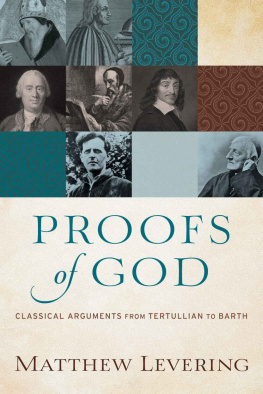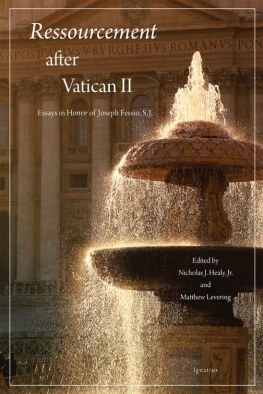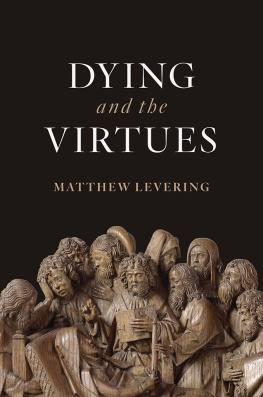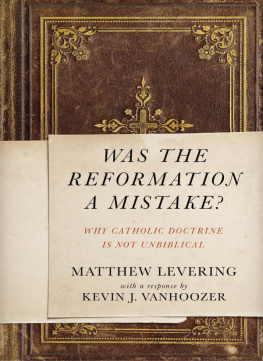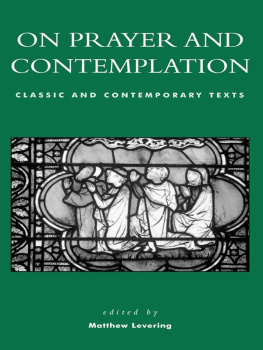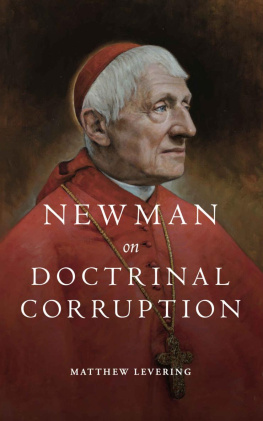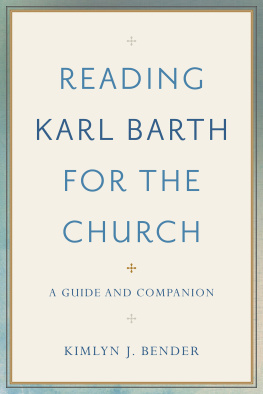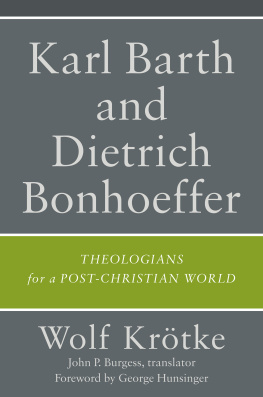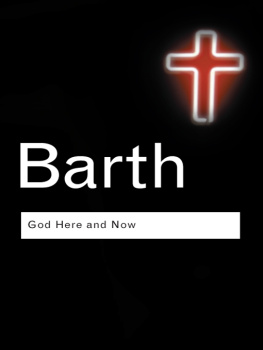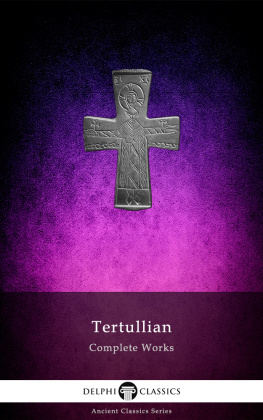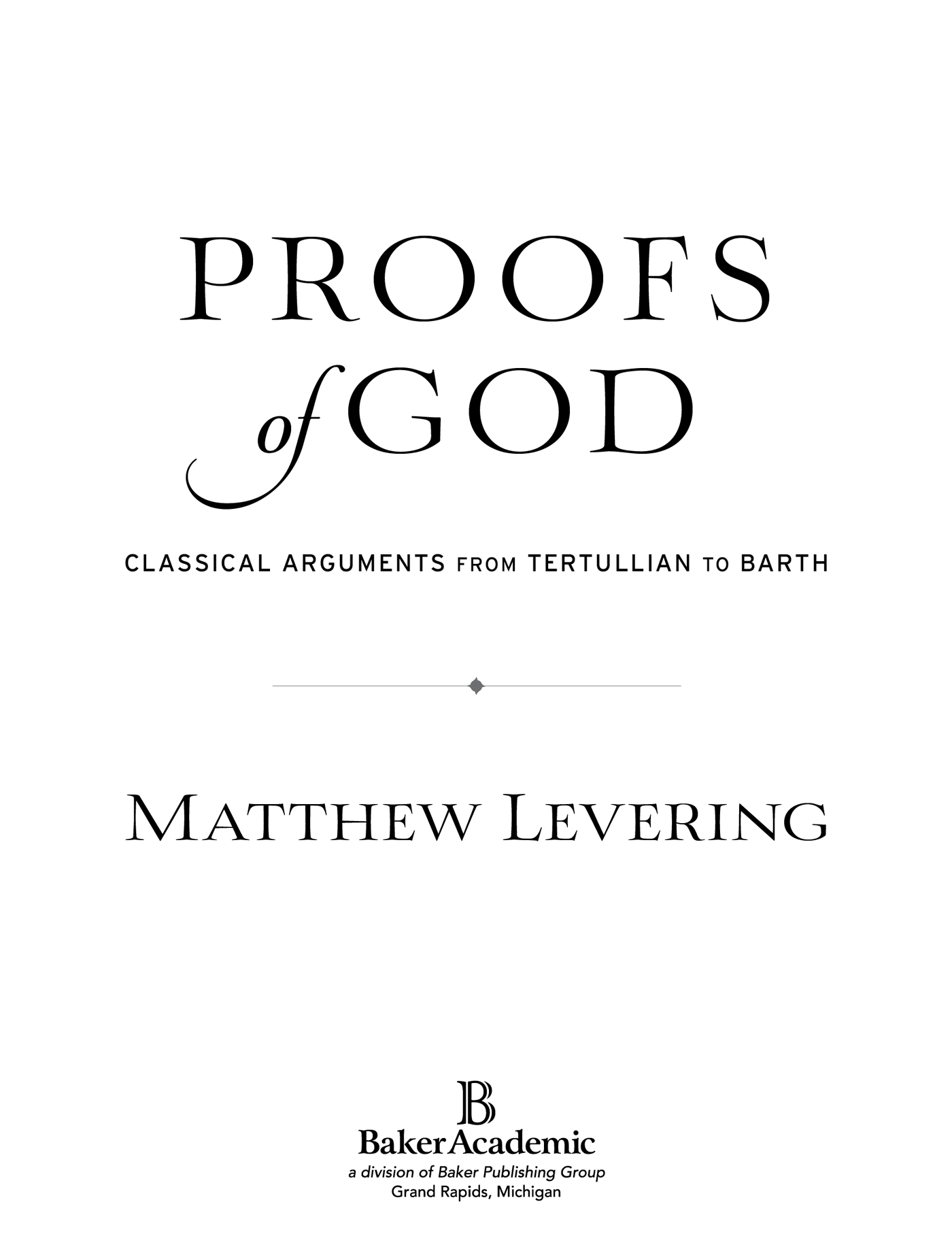1. Patristic and Medieval Arguments for Gods Existence
2. Reformation and Enlightenment Views
3. Nineteenth- and Twentieth-Century Responses
Acknowledgments
This book had its origins in a doctoral seminar on the proofs for Gods existence that I co-taught with Steven A. Long at Ave Maria University some years ago. In that seminar, I spent most of my time taking careful notes! Steve has profound insight not only into Thomas Aquinas but also David Hume, Immanuel Kant, and Ludwig Wittgenstein, as all those privileged to take the seminar can attest.
My chapter drafts were greatly improved by generous scholars who read portions of the manuscript on which they have expertise: Don Briel, Thomas Hibbs, Andrew Hofer, OP, Robert Koerpel, John Michael McDermott, SJ, Sean McGrath, Benjamin Myers, Kenneth Oakes, Kevin OReilly, OP, and Andrew Rosato. Michael Sirilla and Thomas Joseph White, OP, read the whole manuscript and saved me from many omissions and mistakes. I have incorporated a number of suggestions from all of these friends and colleagues. Francesca Murphy, Matthew Ramage, Emery de Gal, Michael Sirilla, and Chad Pecknold testified to the viability of the project as a Baker Academic textbook. Bishop Robert Barron enthusiastically encouraged the project and inspired me by his own expertise on the topic. At Baker Academic, Dave Nelson supported the project from the outset, guided the book to publication, and offered wise counsel for improvement. Baker Academics Brian Bolger and the editorial staff did a superb job preparing the manuscript. My amazing research assistant, David Augustine, compiled the bibliography and indexes and provided numerous corrections and suggestions that I incorporated into the text.
I wrote this book for my children, in case it might ever be of use to them. May God, who in his infinite goodness is the meaning of life, give my beloved children eternal life in Christ Jesus. For my wife, Joy, my gratitude is so deep. The simple words of Genesis 24:67 express what I wish Joy to know: he loved her.
The book is dedicated to a master theologian and dear friend, born in the same year and month as myself: Fr. Thomas Joseph White, OP. Of him it may be said, The crown of the wise is their wisdom (Prov. 14:24). Gods blessings be upon you, Fr. Thomas Joseph.
Introduction
In this textbook, I offer a concise survey of the major responses, pro and contra, in the Christian tradition to the question of whether the existence of God can be demonstrated by human reason. Readers and classroom teachers should feel free to use the book selectively, rather than studying all of the twenty-one figures I have chosen. My surveys of these twenty-one figures aim to be accurate, concise, and thorough. For readers who are interested, I give my assessment of these figures in the conclusions to the three chapters. In the surveys themselves, I try to be descriptive rather than evaluative.
In this introduction (as well as in the books conclusion), I offer my view of where things stand in contemporary intellectual discourse and popular culture regarding the topic of whether Gods existence can be demonstrated by human reason. In this introduction, I also give a rationale for choosing to study these twenty-one figures, and I examine the key biblical and Hellenistic ideas that set the terms for the demonstrations of Gods existence in the Christian tradition.
To put my cards on the table, I think that the cosmos cannot be the source of its own existence. The cosmos is not a necessary being. In this regard, David Hart rightly remarks that the contingent can only exist derivatively, receiving its existence from the Absolute. It is not necessary that any finite thing, let alone a quantum law, exist. Finite things exist, but they are merely limited modes of being; they are not being as such. A quantum law, insofar as it is , must derive its being from a source.

